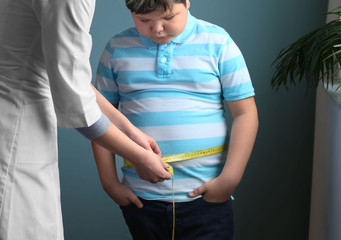Obesity as a medical condition is considered to be the accumulation of excessive body weight or fat. The rate of childhood obesity has been increasing over the past decade. And has been worrisome as we know the health issues and chronic diseases associated with it, e.g. heart disease, diabetes cannot be overemphasized. Although it is considered genetic in some children, it is considered to be the result of unhealthy eating patterns (too many calories) and little physical activity for most. This article will discuss the possible causes of child obesity, the consequences of child obesity and how to prevent obesity in children.
Causes of Child Obesity

The causes of child obesity can be attributed to a variety of reasons. The most common causes of obesity in children include genetic factors, inadequate physical activity in their daily life, poor or unhealthy eating diet, or a combination of all of them.
Atimes child obesity is said to be medical condition such as a hormonal problem, but it’s very rare. A physical exam and some blood tests can determine the possibility of a medical condition (or hormonal problem) as the cause for obesity.
Some behaviorial patterns are also common in children who are obese. They usually consume high-calorie foods and beverages that are low in nutrient. They do not engage in physical activity, but are used sedentary activities like watching television or sleeping.
Possible Consequences of Child Obesity

An obese child is are risk of getting a number of illnesses, which includes:
- Fatty liver disease
- Joint problems
- High blood pressure and high cholesterol
- Breathing problems e.g sleep apnea
- High risk of impaired glucose tolerance and type 2 diabetes
- Anxiety and depression.
How to Prevent Obesity in Children

Below are some tips to help reduce childhood obesity:
1. A healthy diet with reduced calories
Weight loss and dieting is not actually a good approach for young children as not to deprive their body of the nutrients required for their growth and development except per instructions of a medical practitioner. The focus should be on maintaining the current weight as the child normally grows in height. A healthy diet which promotes eating more vegetables, fruits, slim milk, lean meat(fish and poultry), whole grains, nuts, moderate polyunsaturated fat and reduced consumption of red and processed meat, processed food, sugar-sweetened beverages, trans fat and carbonated drinks that contain sodium. Moderate consumption of sweets and snacks are also advised.
2. Reduce sedentary time
Although there should be enough time for reading and homework, sedentary time for children, e.g. watching television, playing video games, and surfing through the internet should be limited (about 2-3 hours a day) and rooms should be free of televisions and video games. Reducing sedentary time helps increase physical activity.
3. Promote/encourage healthy eating habits and patterns
Bad habits such as watching television and playing video games while eating, eating snacks or sweet anytime/at irregular patterns should be stopped as it can lead to overfeeding. Increased fibre intake and drinking a lot of water should be encouraged.
To effectively promote healthy habits among your children the best way is to lead by example. Show them why physical activity and eating healthy are important to you and to them.
4. Keep the Children active
Children should participate in at least 15 minutes of moderate physical intense activity daily. Physical activities like swimming, brisk walking, skipping, jogging, playing football etc. should be encouraged as they have health benefits. A safe, accessible place should be provided outside.
Plan fun family activities that will ensure engages in exercise, like walking, jogging, swimming, biking, or cycling.
5. Maintain positive psychology
Parents/guardians should not make obese children have a poor self-image or have them separated from others during activities because of their size. Also, their appetite should not be overlooked; they should not be made to believe that there are good or bad foods but made to understand that certain food items should be consumed moderately. For example that low-nutrient foods, sweets, candy and cakes are not for everyday consumption.








